 Can Cinnamon as a Feed Additive Reduce Antibiotic Use?
06. 20. 2018
#Feed industry
Can Cinnamon as a Feed Additive Reduce Antibiotic Use?
06. 20. 2018
#Feed industry

It seems that cinnamon may be more helpful than as a tasty ingredient for a cinnamon roll, breakfast cereal, or polvorones de canele, as feed additive researchers have found that it can also help piglet growth. As the industry journal Feed Navigator, reports, “A cinnamon-derived feed additive may support gut health and feed intake for piglets while reducing instances of diarrhoea.”
The study was conducted by an international team from Canada, China, and the US, and was based on adding Olieum cinnaomoni (OCM) to piglet diets. OCM is a type of essential oil commonly used in the food industry, that is extracted from the inner bark of several tree species from the genus Cinnamomum.
Up till now there has been very little analysis on how cinnamon could be used as a feed additive. This is surprising, because while it is typically used in human food for its aroma, it has long been known to suppress the growth of moulds, yeast, and bacteria, making it an obvious potential candidate as an antibiotic replacement.
But now a research team have published results in the International Journal of Molecular Sciences, stating that, “Compared with a control group, dietary supplementation with 50 mg/kg OCM increased the average daily feed intake (ADFI) of pigs by 13.6%, and decreased the diarrhoea incidence of piglets by 37.5% (Table 1). Pigs in the OCM group had a numerically 18.5% greater average daily gain (ADG) than that in the control.”
Specifically, cinnamon as a feed additive improved piglets’ villus width and villous surface area in both the duodenum and jejunum, as well as decreasing the amounts of bad bacteria found in the colon. Notably, Enterobacteriaceae family (-87%), Lactobacillus genus (-54%), Bifidobacterium genus (-76%), Enterococcus genus (-64%), and Clostridium coccoides (-73%), compared to the control. While in the caecum, Enterobacteriaceae family (-34%), Clostridium coccoides (-59%), and Bifidobacterium genus (-73%) all decreased, yet Enterococcus genus and Lactobacillus genus amounts increased (212% & 104% respectively).
These results have led the researchers to conclude that, “Dietary supplementation with OCM is an effective alternative to feed antibiotics for swine.” Adding that it also, “enhances feed intake, modulates intestinal microbiota, improves intestinal functions, and reduces the incidence of diarrhoea in weanling pigs.”
While the study may have been small (only 16 piglets were analysed over a period of 21 days), there can be no denying the clarity of the results. There is also plenty of logic behind using a natural bacteria suppressant to replace antibiotics, making cinnamon a helpful addition to feed manufacturers’ weaponry.
Furthermore, the use of cinnamon may also be part of a trend among feed additive suppliers towards more natural, herbal feed additives. As Kathleen Crandell, Ph.D., an animal nutritionist told Equinews, ”Cinnamon supplementation provides yet another example of a traditional herbal medicine making a comeback to benefit modern medical patients.”
While Crandell’s specialisation may be on horses, this latest study shows that there are clear benefits to feeding cinnamon to other animals, including piglets. And maybe humans too!
AG CHEMI GROUP is a supplier of industrial feed additives, including feed grade monocalcium phosphate or MCP.
MCP has the following features and advantages:
- neutralizes the harmful effects of a number of elements - sodium, potassium, magnesium, and others
- ensures the proper functioning of the heart, nervous and muscular systems, as well as many other organs
- improves digestion, by increasing the activity of digestive enzymes
- strengthens the immune system
- participates in the relocation of lipids, protein biosynthesis, and the cleansing of the intestine from harmful substances
- improves the efficiency of carbohydrate, protein, fat, mineral, and energy metabolism in the body
- does not contain heavy metal impurities
- does not have a destructive effect on enzymes and vitamins, nor does it block the effect of proteins and the amino acids
- contains the highest degree of digestibility (bioavailability)
- a minimal amount of phosphorus is released in animal waste, limiting environmental pollution
- contains a minimal amount of mineral mixture for maximum digestibility
MCP – Animal Feed’s Most Effective Growth Supplement
MCP acts as an inorganic phosphate supplement and plays an important role in the animal feed industry. It provides animals with calcium and phosphorus, which helps to improve an animal's organism, metabolism, and the functioning of nervous, immune and reproductive systems thereby increasing productivity.
Technical aspects of Monocalcium phosphate produced by the Phosagro group:
Production
PJSC PhosAgro
https://www.phosagro.com

The most important quality indicators
| Indicator | Value |
|---|---|
| Total phosphorus (in terms of P) | min. 22.3% |
| Total phosphorus soluble in 2% citric acid | min. 95% |
| Mass fraction of calcium | min. 15% |
| Residue on a sieve with a cell diameter | > 3 mm - 0% 0,2 - 2 mm - 80% ≤ 0,2 mm - max. 20% |
| Light gray fine-grained flowable powder | granulated |
Packing
- 800, 1000 kg BB
- silo truck (pneumatic tank)
Based on recent studies, phosphorus from monocalcium phosphate is more useful for livestock and poultry than other inorganic sources, as the percentage digested is much higher. The addition of monocalcium phosphate to feed mixtures provides an increase in live weight of livestock and poultry by 5-12% higher in comparison with other types of feed phosphates. Monocalcium phosphate can be safely used for feed without any harmful consequences. Adding monocalcium phosphate to the diet of your livestock and poultry will increase their productivity, and bring excellent biological, energy, and economic benefits.
Photo credit: Chefcaprabo, NDTVFood, Pinterest, Maxpixel, & FarmersWeekly
